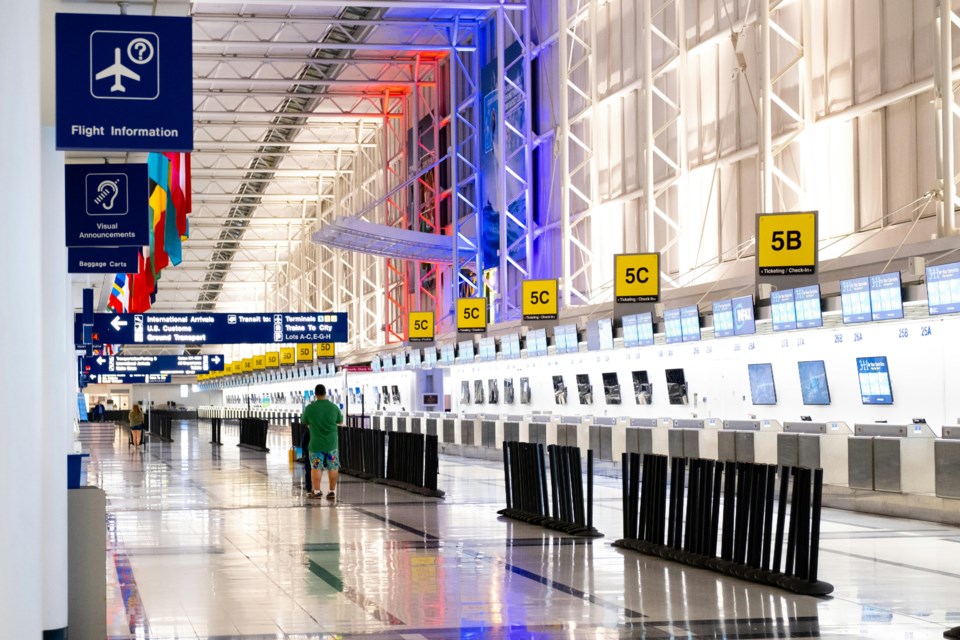Recent reports of at the United States border have many questioning whether travel to the U.S. is safe.
As the , , putting many travellers on high alert.
The parallels to the COVID-19 pandemic are notable. During the crisis, , even after borders reopened and health experts deemed it safe. Today, similar discourse is emerging. But how much of this concern is based on real risk, and how much is driven by heightened media attention?
As experts in tourism and travel, we are here to explain the current risks associated with travelling to the U.S., the rights of travellers if they are stopped at the border and safety tips for those who still choose to make the journey.
What are the risks?
Research has long shown that . These intentions are determined by their in a certain destination.
Detainment at airports and border crossings is perhaps for travellers to the U.S. While the incidents so far have seemed random, many worry about their .
While some of those affected are Americans returning from vacation or business trips, anyone can be stopped, including foreign students with visas, and , even with valid documentation.
These fears, along with reports of travellers being delayed at land border crossings, have resulted in a decrease in the number of Canadians crossing the Canada-U.S. border. In February, , with many cancelling reservations or making for spring and summer.
The current situation aligns with research showing that can impact a country’s image as a travel destination, which, in turn, affects whether people want to visit it.
Other concerns relate to local resident negative sentiment. While many Americans are sharing their support of Canada and , there is still concern for how some in the U.S. may react to Canadian travellers.
Recent studies have shown that while Americans see Canadians as friendly, . about stricter measures at U.S. points of entry.
Know your rights as a traveller
What rights do travellers have when crossing the border? Very few. While travellers have the right to refuse to answer questions from immigration officers, doing so can result in increased suspicion and being denied entry.
Canadians should be aware that U.S. border officials have , which can include requesting passwords to digital devices. These powers apply not only at border crossings but also in customs-controlled areas — designated zones in a border crossing area or airport.
Both the Canada Border Services Agency and U.S. Customs and Border Protection have the any digital device.
Once at a land border, Canadians are under the exclusive jurisdiction of U.S. laws, not Canadian laws or the Canadian Charter of Rights and Freedoms. If questioned, travellers can ask if they are being detained, or if they are free to leave. If they are not free to leave, the agent needs reasonable suspicion to justify the detention.
Tips for reducing risk while traveling
Following customs and immigration laws generally means travellers are unlikely to encounter any issues. However, there are some things that could at the border, including staying longer than intended, failing to declare goods to a border officer or not having the proper documentation.
If you intend to travel, be respectful of local customs, even if political perspectives differ. Avoid political messaging on clothing, offensive behaviour or sparking political conversations with locals.
While , it is best to be cautious about the content on your devices, including social media posts and profile, political views and other personal information.
. In particular, people should know about at the U.S. border. The Canadian government also offers regarding privacy issues.
It’s important to stay updated on related to geopolitical conflicts because they are rapidly evolving. Be sure to follow recommended travel precautions, like
‘Antipathy’ to U.S. has real impacts
Reports of increased detainments, stricter border enforcement and heightened security screenings demonstrate that the risk for travellers at the border is real.
These incidents have not only created fear among travellers but have also started to take a toll on the U.S. tourism industry.
in visitation — down about 15 per cent — and about a 12 per cent drop in revenue due to travellers choosing to boycott the U.S.
Global geopolitical tensions have fuelled growing resentment toward the U.S., with many international travellers choosing not to travel for political and economic reasons.
Canada, on the other hand, could end up benefiting from a tourism perspective. International visitors are as a safer and more affordable alternative than the U.S. for leisure and business travel.
The question now is whether this trend will last. The geopolitical situation has led many around the world to feel , and reversing those attitudes will take effort and time.
The authors do not work for, consult, own shares in or receive funding from any company or organization that would benefit from this article, and have disclosed no relevant affiliations beyond their academic appointment.




